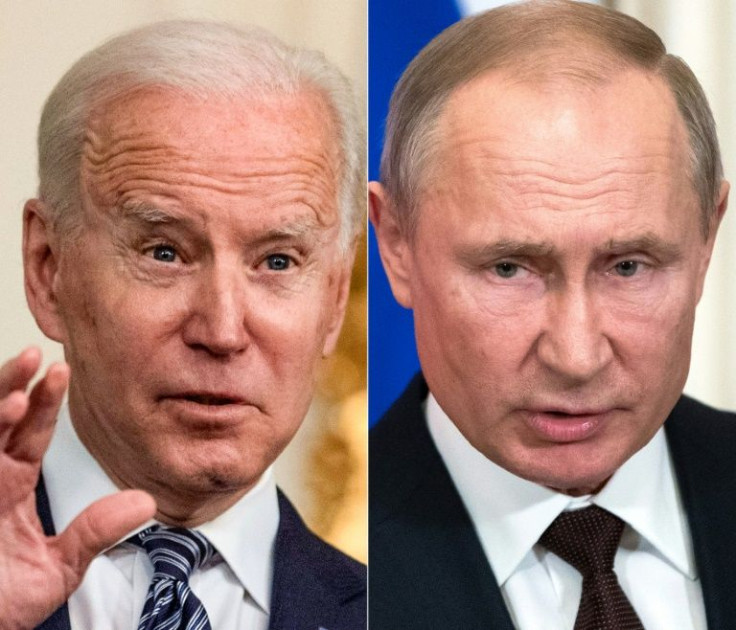Putin Puts Pivot To Asia Of US In Reverse Gear And Pays For It With Ukraine

Vladimir Putin stopped Russia from dancing to Washington's tunes 14 years ago and the Pivot to Asia policy turned topsy-turvy for the US. Now the US is out in the open to teach Russia a lesson with NATO as its flag-bearer.
On Feb. 10, 2007, Vladimir Putin, current Russian president, created a rift with his speech at the 43rd Munich Security Conference by committing himself to a multipolar global system, repudiating the pretensions of the US to assume global leadership.
With one stroke, Putin rejected once for all the US' assumed role as the world's only superpower and steward of global security.
For Washington, this privileged position to rule the world was assiduously earned by prevailing in the Cold War which gave it sole power to intervene unilaterally whenever it sees fit.
In the early years of his presidency, Putin used to comply with western demands and accept a secondary role in the Washington-centric scheme of things. But that changed with the Munich speech. With the Syrian War in 2011, Putin proved where his priorities lie when it comes to allowing a free hand for the US to run global affairs.
Since the blistering hour-long critique of US foreign policy by Putin 14 years ago, curtains fell on years of deliberation among US think-tanks as to whether Russia could be integrated into the US-led global system, playing the role of a junior partner like other US allies.
The Munich declaration made it clear that Putin's Russia will not give up without a fight. For challenging US global aspirations, Russia was slapped with sanctions, a US-led coup in neighboring Ukraine, an orchestrated crash in oil prices (Russia is the world's second-largest crude oil producer), an attack on its currency ruble, a proxy war in Donbas in eastern Ukraine, and many a false flag operation.
In fact, the US also pampered the wish of staging a palace coup to get rid of Putin with the help from the Russian elite, and backed by the military and secret police. Due to this aim in mind, US economic sanctions were targeted at individuals so as to exert pressure on them to side with the US.
Though Putin has refused to march in lockstep to Washington's directives, he has avoided a direct confrontation with the world's largest military spender. However, the longest-serving Kremlin leader since Joseph Stalin has not sacrificed vital national security issues and is dead against NATO's expansion to Russia's borders. Putin has been in power since 2000.
In 2011, the US administration under President Barack Obama announced the Pivot to Asia policy under which two-thirds of US naval power would be transferred to Asia and the Pacific to meet the undeclared threats from China.
Putin's decision to stay away from US influence has seen American superpower is being tested in more than one new way across the globe.
After the humiliating withdrawal from Afghanistan was completed in September 2021, the US increased its military aid to Ukraine in an attempt to make it an eligible candidate to earn membership in NATO, which played a secondary role in the US-led theatre of war worldwide.
In fact, all these wars later turned into a quagmire and proved a disaster for the US. However, NATO was saved as its role was that of a junior partner. In wars in Yugoslavia, Iraq, Libya, Syria, and Afghanistan, it was the US that was calling the shots and the NATO role was allotted a secondary role.
Contrary to other wars, a NATO-led confrontation with Russia can lessen US responsibility to a greater extent by putting the ball in the court of NATO nations. The US is exhausted due to its endless wars abroad so it has to make room to swap its strategic obligations for political reasons.
Currently, NATO, under the US direction, is making efforts to extend the lifespan of the US-leaning government in Ukraine which is all the more willing to join NATO.
Sixty-nine-year-old Putin's decision to stand up to the United States took the steam out US government's strategy of Pivot to Asia, and encircle China and rule the world by ensuring control over the flow of resources and raw materials from Asia to Europe.
Neither Obama, Donald Trump nor Joe Biden has hinted at risking World War III over Ukraine. But all the three presidents were unanimous in teaching a lesson to Putin, a judo black belt, for wrecking the Pivot Asia policy.





